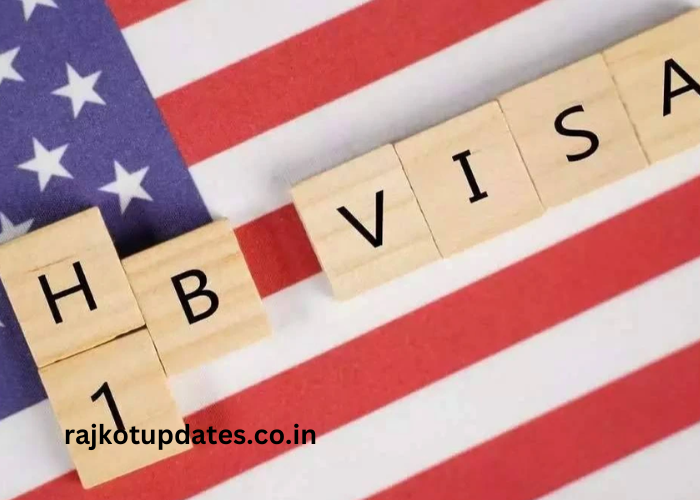In a significant development for the Indian diaspora in the United States, the US government has announced new policies granting work permits to the spouses of H-1B visa holders. This move has generated considerable excitement within the Indian community, particularly among professionals working in various sectors such as technology, healthcare, and education. This article delves into the implications of this policy change, its impact on families, and the broader context of immigration in the United States.
Understanding the H-1B Visa
The H-1B visa program allows US employers to temporarily employ foreign workers in specialty occupations that require theoretical or technical expertise. This visa is particularly popular among Indian professionals, especially in fields like information technology and engineering. However, the spouses of H-1B visa holders traditionally faced restrictions on employment, creating challenges for families.
The Need for Work Permits
Historically, spouses of H-1B visa holders have been classified under the H-4 visa category, which did not permit them to work in the United States. This limitation often led to financial stress and a sense of isolation among spouses who are also highly skilled professionals. The new policy aims to alleviate these challenges by granting work permits to eligible H-4 visa holders.
The Announcement of the Policy Change
The recent policy change was announced by the US Citizenship and Immigration Services (USCIS) as part of a broader effort to streamline immigration processes and promote workforce diversity. By allowing H-4 visa holders to work, the government seeks to attract and retain talented individuals who contribute to the US economy.
Economic Implications
The granting of work permits to Indian spouses of H-1B visa holders has significant economic implications. With the ability to work, these individuals can contribute to the labor market, leading to increased household incomes and consumer spending. This, in turn, benefits local economies and fosters economic growth.
Social Benefits for Families
Beyond economic advantages, the policy change has important social implications. Allowing spouses to work helps create a more balanced family dynamic, reducing stress and enhancing overall well-being. This change fosters greater equality within households and supports professional aspirations, contributing to higher levels of job satisfaction.
Impact on the Indian Community
The Indian community in the United States has long been one of the largest immigrant groups. This policy change is expected to resonate strongly within this community, as many families have faced the challenges associated with the H-4 visa restrictions. The ability to work can lead to a greater sense of belonging and integration into American society.
Navigating the Application Process
While the announcement has been met with enthusiasm, navigating the application process for work permits can be complex. H-4 visa holders must follow specific procedures and meet eligibility requirements to obtain their work permits. Understanding these processes is crucial for interested individuals.
The Role of Advocacy Groups
Various advocacy groups and organizations have played a significant role in lobbying for changes to H-4 visa regulations. These groups have raised awareness about the challenges faced by families and have worked tirelessly to influence policy decisions. Their efforts have contributed to the recent positive developments in immigration policy.
Broader Trends in Immigration Policy
The granting of work permits to H-4 visa holders aligns with broader trends in immigration policy aimed at attracting skilled professionals to the United States. Policymakers recognize the importance of foreign talent in driving innovation and economic growth, leading to a more inclusive approach to immigration.
Challenges Ahead
Despite the positive changes, challenges remain. The implementation of the new policy will require careful monitoring to ensure that the process runs smoothly. Additionally, broader immigration reforms may be necessary to address ongoing concerns about visa backlogs and processing times.
Community Reactions
The response to the policy change has been overwhelmingly positive, with many individuals expressing gratitude for the new opportunities. Social media platforms have become a space for celebration and discussion, highlighting the significance of this development for families and communities.
Future Prospects for H-4 Visa Holders
As the new policy takes effect, the prospects for H-4 visa holders appear bright. With the ability to work, these individuals can pursue their careers, gain valuable experience, and contribute to their communities. This change represents a significant step toward achieving a more equitable immigration system.
Conclusion
The decision to grant work permits to the spouses of H-1B visa holders is a transformative policy change with far-reaching implications for families, the Indian community, and the US economy. By enabling H-4 visa holders to work, the US government is taking a step toward fostering inclusivity and harnessing the talents of skilled professionals.
As the implementation of this policy unfolds, it holds the potential to enrich the lives of many families, strengthen communities, and contribute to the continued growth of the American economy. RajkotUpdates.News remains committed to providing timely updates and analysis on important developments that affect the lives of individuals and families across the globe.



